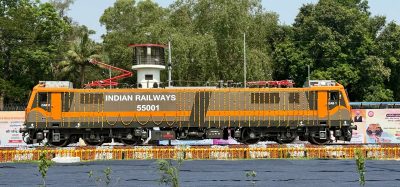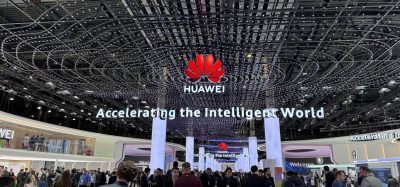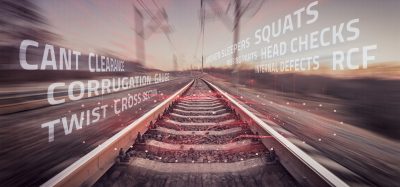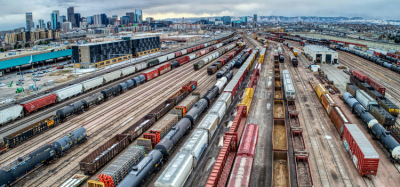A coordinated approach proposed for the digital era at Rail Forum Europe
Posted: 7 May 2015 | | No comments yet
At a dinner-debate held in Brussels by Rail Forum Europe, a coordinated approach was proposed for the implementation of digital technology in the rail system. In order to fully unleash digital potential, a long-term vision and coordinated approach among all rail stakeholders was recognised within the framework of the EU Digital Single Market Strategy by […]
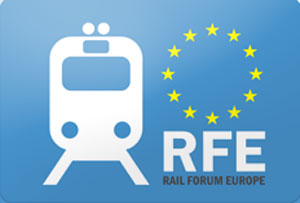

At a dinner-debate held in Brussels by Rail Forum Europe, a coordinated approach was proposed for the implementation of digital technology in the rail system.


In order to fully unleash digital potential, a long-term vision and coordinated approach among all rail stakeholders was recognised within the framework of the EU Digital Single Market Strategy by SNCF and Thales.
The open debate discussed the importance of digital technology as a tool for every user as well as a competitiveness asset for the sector as a whole.
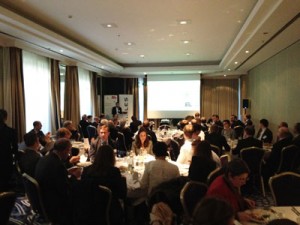

Yves Tyrode, SNCF Chief Digital Officer, gave a broad overview of SNCF’s digital plan aiming at transforming SNCF within 18 months and leveraging digital technology for each user. He explained that SNCF data opening will be accelerated in order to develop innovative services for customers. He concluded by saying: “We need the right standards with the right technology and we need to accelerate by enabling companies and developers to innovate quickly”.
Yves Pérréal, Thales Director for Advanced Studies, highlighted the main challenges of digital technology related to volume, variety and velocity of big data. In this respect, digital technologies are changing current business models and the approach to intellectual property. He explained that Shift2Rail is the instrument already in place in order to address these challenges. Pérréal said: “A long term vision on digital railways can be applied on the 5 innovation programmes on rolling stock, traffic management, infrastructure, IT solutions and freight. The supply industry, infrastructure managers and operators will work together with the support of academia and research centres on this goal.”
Olivier Onidi, DG MOVE Director on European Mobility Network, made it clear that the completion of a digital single market is one of the 10 priorities of the Juncker Commission. He said: “There is a need to have a fresh look at EU digital railway applications in light of technological evolutions in order to enhance safety and security, optimise capacity and ensure a high quality of services” Four main challenges for rail to get in the digital era were highlighted: innovation, intermodal door-to-door approach, access to data and further deployment of ERTMS.
Josef Doppelbauer, ERA Executive Director, highlighted that some railway undertakings are investing heavily in digitalisation and many customer-focused developments are underway. However, the focus is still on company use and not on a wider EU policy agenda. Commenting on the role of ERA, he said: “Registers for rolling stock and infrastructure are an important element of digitalisation. ERA could help the sector to develop this vision. Additional quick wins should be pursued as well such as further digitalisation of railway operations based on fair and open access to data, improved transparency of rules and a harmonised EU approach to safety and interoperability”.
Pauline Bastidon (CER) emphasised the openness of the railways, which are working closely with industry partners and with other modes on developments in the field of digitalisation. “Individual company developments, together with industry projects such as the Full Service Model initiative and the e-rail freight project, are proof of this openness and willingness to work with all relevant partners to embrace the digital agenda in rail” she commented.
RFE President and Chairman of the European Parliament’s TRAN Committee Michael Cramer commented on the debate: “Nowadays smartphones and applications have become an essential tool for all transport users. This is certainly good news, however it is clear that digitalisation should go hand-in-hand with coordination. In particular, the development of integrated ticketing for rail cross-border connections is essential in order to compete with other transport modes. We will use what we have learned tonight for our work in the Parliament on the Fourth Railway Package, the review of the Transport White Paper and integrated ticketing”.




